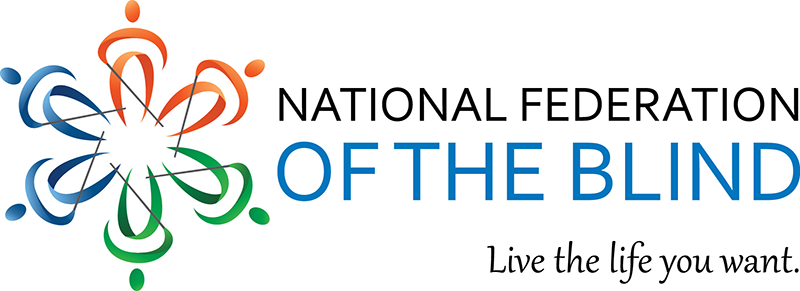 Monica Basche, an attorney at Brown, Goldstein & Levy, presented two sessions at the National Federation of the Blind of Virginia’s 66th Annual Convention in Portsmouth, Virginia. The three-day annual conference is the largest gathering of blind and low-vision people in Virginia, providing the opportunity for attendees to connect on topics to achieve equality and opportunity for blind people across the country.
Monica Basche, an attorney at Brown, Goldstein & Levy, presented two sessions at the National Federation of the Blind of Virginia’s 66th Annual Convention in Portsmouth, Virginia. The three-day annual conference is the largest gathering of blind and low-vision people in Virginia, providing the opportunity for attendees to connect on topics to achieve equality and opportunity for blind people across the country.
Monica’s first presentation, which included participation from the mother of one of the prisoner plaintiffs in NFB-VA, et al. v. VDOC, was titled, “Protecting the Rights of All Blind People: Ensuring Equal Access and Effective Communication for Blind Prisoners.” This presentation focused on highlighting the inequities and injustices that exist in the prison system for blind prisoners, who are routinely denied equal access to programs and services that sighted prisoners receive and equally effective communication. These denials affect all areas of prison life, including jobs, educational opportunities, housing, recreation, and participation in everyday prison life. Because blind prisoners are effectively shut out of prison programs and services, they are punished not only for their crime, but also for being blind.
As a civil rights attorney with BGL, Monica has worked diligently to bring justice to blind prisoners. In June 2024, she was part of a legal team that obtained injunctive relief on behalf of blind prisoners in the custody of the Virginia Department of Corrections; in a case brought forward on behalf of the National Federation of the Blind of Virginia.
During Monica’s second presentation, titled “The Future of Disability Rights after the Overruling of Chevron,” she discussed the recent overruling of “Chevron deference” in United States Supreme Court case Loper Bright Enterprises v. Raimondo. In Loper Bright, the Court eliminated the requirement that courts defer to a federal agency’s interpretation of laws that it is tasked with enforcing.
The presentation went into detail on what the ruling could mean for disability rights moving forward, specifically for the regulations that the Department of Justice has enacted pursuant to its statutory authority under the Americans with Disabilities Act and Section 504 of the Rehabilitation Act. Monica has also written a blog on Loper Bright’s potential impact on regulations enacted by the Department of Education under the Randolph-Sheppard Act, a federal statute that gives blind licensed vendors priority in operating vending facilities on federal properties, which you can read here.
About Monica Basche:
 As an attorney with a wide range of civil rights litigation experience in state and federal court, Monica is well positioned as a thought leader on both subject areas. In her practice, Monica has successfully represented individual clients in employment discrimination, disability discrimination, prisoners’ rights, and Randolph-Sheppard Act cases. She has also successfully represented corporate clients in commercial business disputes. Monica prides herself on the strong relationships she builds with her clients. She takes a client-centered approach to lawyering, counseling her clients on all their options, including, when possible, those that avoid litigation.
As an attorney with a wide range of civil rights litigation experience in state and federal court, Monica is well positioned as a thought leader on both subject areas. In her practice, Monica has successfully represented individual clients in employment discrimination, disability discrimination, prisoners’ rights, and Randolph-Sheppard Act cases. She has also successfully represented corporate clients in commercial business disputes. Monica prides herself on the strong relationships she builds with her clients. She takes a client-centered approach to lawyering, counseling her clients on all their options, including, when possible, those that avoid litigation.
ABOUT BROWN, GOLDSTEIN & LEVY
Founded in 1982, Brown, Goldstein & Levy is a law firm based in Baltimore, Maryland, with an office in Washington, DC. The firm is nationally recognized in a wide variety of practice areas, including complex civil and commercial litigation, civil rights, health care, family law, and criminal defense. Above all else, Brown, Goldstein & Levy is a client-centered law firm that brings decades of experience and passionate, effective advocacy to your fight for justice.